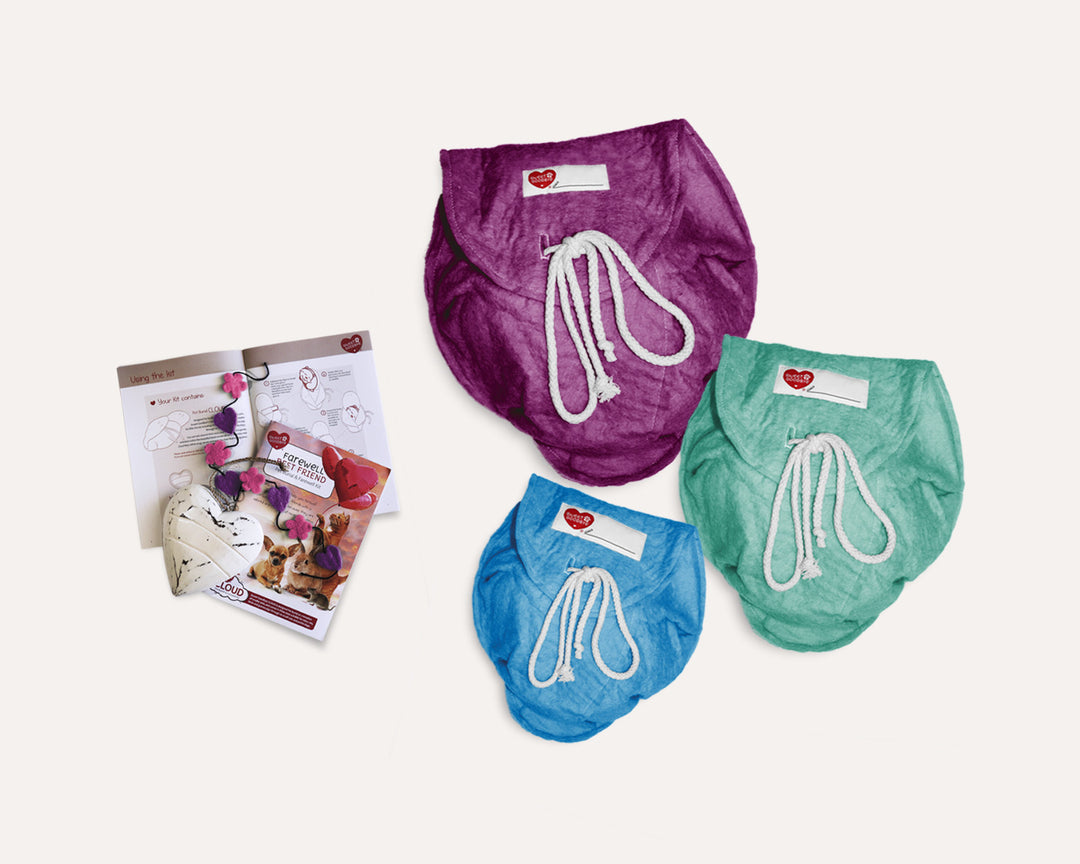How to Support a Friend or Family Member Grieving the Loss of a Pet

Saying goodbye to a pet is never easy but unfortunately, is something that every pet owner will be faced with at some point. Grief can be a very isolating and lonely time. Most of us will have friends or family members that own pets, therefore it’s important to be equipped with a few ways in which you can best support a grieving loved one.
Here are a few of our top tips as to how you can best support a loved one, that is in the midst of grieving the loss of their beloved pet.
Acknowledge their grief
Acknowledging someone's grief is important in showing that you recognise and respect the depth of their loss. Pets are typically an integral part of a family structure or one's best friend, therefore their loss carries huge significance and deserves to be validated.
Through using compassionate and empathetic language as well as offering validation as to how they are feeling and the emotions they are currently experiencing, you are allowing your loved one a safe and supportive space to grieve.
Share memories
Sharing memories of a beloved pet can be a great way to offer comfort and show support to its owner, whilst also highlighting the positive impact the pet had in others lives. Whether you know the pet personally or not, encourage them to share their favourite moments with you or flick through some pictures and videos together.
These conversations can be a source of comfort to your loved one and will remind them how special their pet was. Sharing these memories also helps keep their pets spirits alive, which is very comforting whilst experiencing grief.
Offer practical help
The loss of a pet is a difficult time for its owner and can oftentimes be a very overwhelming period, as the normal day-to-day hustle and bustle continues. Cooking a warm meal or picking up the packages from the post office will not be top of mind for them. Offering practical help like: preparing meals, helping with additional pets and children or household tasks as well as running errands for them, can really help lighten the load on your loved one, allowing them the time and headspace to properly grieve.
Provide resources
Whilst this may be an isolating time for your loved one, there are plenty of resources readily available that can help guide them through this hard time and make them feel less alone. If there are any local support groups for pet loss, provide them with information on how to join. For convenience, it may be worth exploring potential virtual support groups or webinars.
In addition to support groups, there are also many well-regarded books addressing pet-loss, as well as websites and forums that can offer support and guidance.
If you notice that the person’s grief is significantly affecting their daily functioning, such as persistent depression, inability to perform daily tasks, or extreme isolation, it might be time to suggest professional help. It is very important to approach this topic with care and highlight the focus of their well-being. If you know of any local therapists or counsellors who specialise in grief or pet loss, provide their contact information.
By offering these resources in an empathetic and non-intrusive way, you are able to provide practical support that can help them navigate their grief and find additional comfort
Ultimately, you need to be prepared that they may not be ready to seek your help immediately. Continue to offer your support and guidance until they feel ready to take your provided resources on board.
Be patient and understanding
There is no rulebook or timeline to grief. Everyone's process will be different and being patient and understanding is absolutely key.
It’s important to continue offering support, even once the initial shock of the loss has worn down, as the pain of losing a beloved pet can persist long after the pet has passed. Check-in regularly with your loved one and continue to offer practical help when needed. Something as simple as a quick check-in call, asking them how they are doing or dropping off a home cooked meal for dinner, can already make a world of difference when going through a tough time. In the long run, these little yet consistent acts of support help.









